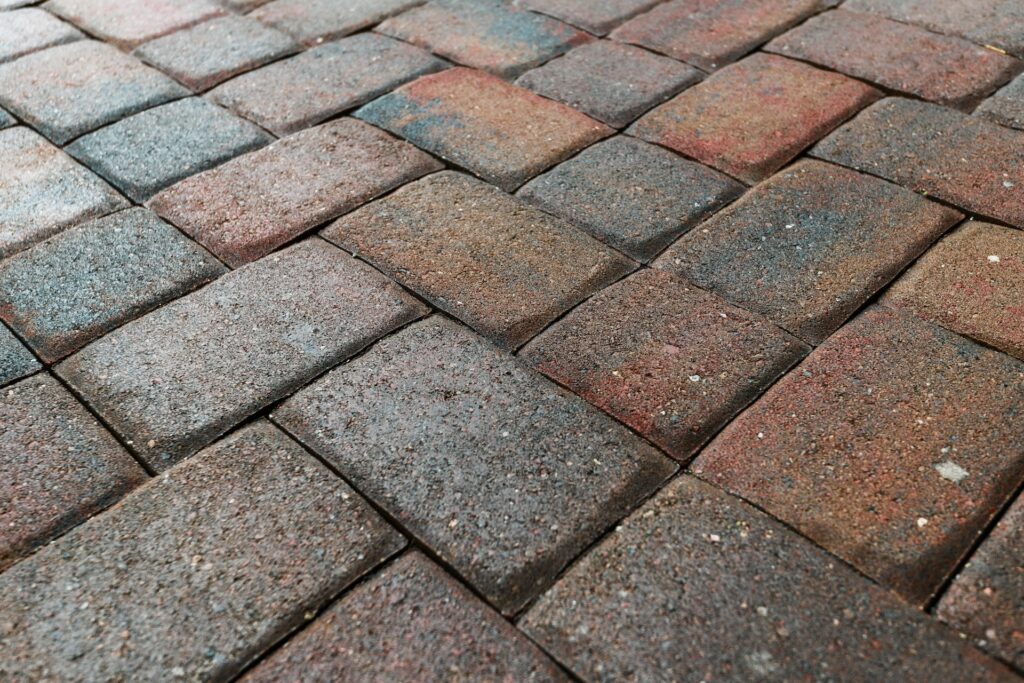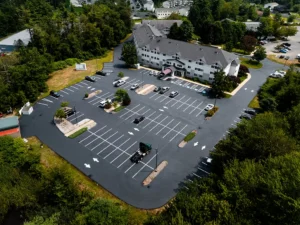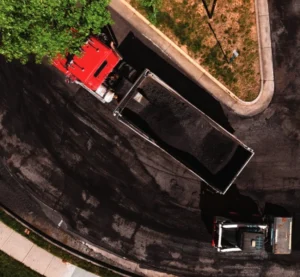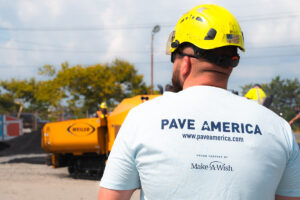It’s been only a few months since your building’s stunning new walkway was installed. But the beautiful earth-toned pavers are already pitching, creating a trip hazard and an eyesore that will become even more unappealing over time.
Why is this happening?
Here are some of the problems that often require brick paver repairs:
- The pavers are uneven: If the pavers have been laid over an area that was dug up and refilled, then the ground might not have been compact enough to bear the weight of the pavers (and people standing and walking on top of them). The result is an area of pavers that settles—or sinks down—into the earth.
- The base has washed out: To avoid future brick paver repairs, the installation process must involve proper base material. A typical base material used for laying brick pavers is crushed rock that contains different-sized stones with sharp edges that promote effective compaction, such as 3/4 minus gravel.
- The border is tipping to one side: This typically indicates that the edge restraints are gone or were never installed. Edge restraints—made of plastic, wood, metal, or pre-cast concrete—are an important component of proper paver installation. Without them, the pavers in your patio, pathway, or parking area will start to separate as people walk on them or cars drive over them, and brick paver repairs will be necessary.
- There’s water puddling in odd places: When a base isn’t installed at the proper pitch or something else causes the pavers to settle unevenly, it can result in an indented area that allows water to collect.
- There are plants growing between the pavers: One of the final steps in paver installation is applying a sand-binding sealant after the sand joints have been applied to the pavers. This prevents the layer of sand that’s directly under the pavers from being washed away and inhibits plants from growing between the stones. It’s particularly important to seal pavers in the Washington, DC, Maryland, and Virginia area, where harsh winter snows and intense summer storms can dump large amounts of water on the ground in a short period of time.
- There’s been too much power washing: Power washing is good for some surfaces, but any areas with pavers should not be subjected to power washing, as this process can easily dislodge the sand joints, causing the pavers to shift and buckle.
An aesthetically pleasing pavement plan can do wonders for your business in the Washington, DC area. There’s even evidence that quality apartment paving helps attract potential tenants. Don’t let an unsightly brick paver path go unrepaired; you might be losing out on potential business!
For more information about brick paver repairs in Maryland, Virginia, or Washington, DC, call Pro-Pave, Inc. today at (703) 433-9500.




